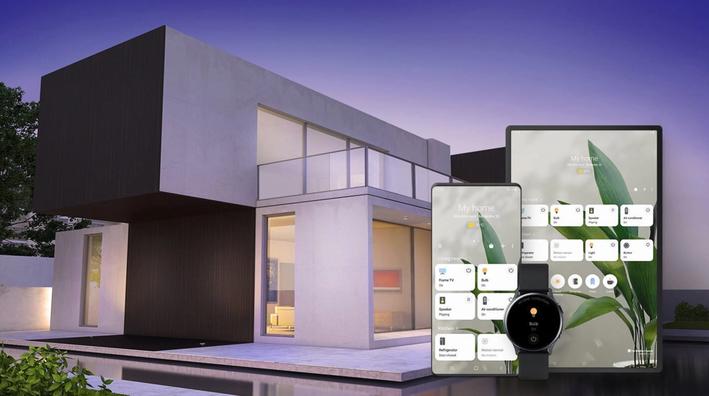SmartThings Find network hits 70 million auxiliary device mark, introducing enhanced convenience and privacy features
Samsung today announced that the company's recently launched SmartThings Find ecosystem continues to grow rapidly. Indeed, it now has more than 70 million auxiliary devices. The service also continues to evolve with improved privacy features and voice control updates. The updates, which include the ability to detect unknown Galaxy SmartTags in your vicinity and the use of Bixby to easily find your belongings, give you more control over your wearables from the SmartThings app.
SmartThings Find becomes one of the fastest growing location services
SmartThings Find[1], one of the standout features of the SmartThings ecosystem, allows Galaxy users to quickly and easily locate registered Galaxy smartphones, tablets, smartwatches, and headphones using Bluetooth Low Energy (BLE) technologies and ultra-wideband (UWB). It can also help you find personal items such as keys, bags and bikes that have one of Samsung's small Galaxy SmartTag Bluetooth devices attached.
SmartThings Find users can help others find lost or misplaced items by activating it through the SmartThings[2] app. Since its launch in October 2020, more than 70 million devices have been registered and with rapid consent, 700 million Galaxy users can participate in the SmartThings Find network, making it one of the services of fastest growing location in the world.

SmartThings Find expands with new security and convenience features
Along with the expansion of its devices, users are increasingly turning to SmartThings Find to keep tabs on their most important possessions. In fact, more than half of Galaxy SmartTag users attach it to their house or car keys, followed closely by backpacks, wallets and bicycles. Now, starting next week, Galaxy users will get two new SmartThings Find features that will not only make it easier to find those things, but also give them peace of mind when it comes to security[3].
First, users will now be able to use Bixby[4] for convenient hands-free, voice-activated Galaxy SmartTag searches. Users can easily and quickly find their belongings by reporting the SmartTag name to Bixby; for example, if the user asks "Hello Bixby, where is my bike?" Bixby will immediately find and share its exact location by ringing it.
Also, the new Unknown Tag Finder feature can detect that a Galaxy SmartTag that doesn't belong to you is moving with you. With just the press of a start button, Unknown Tag Search will search for unknown SmartTags and provide a list to ensure no one is secretly tracking your location.
As a reminder, all SmartThings Find user data is encrypted and securely protected with a random private ID, which changes every 15 minutes, ensuring that the location of the device is not revealed to anyone, except its owner.
The SmartThings ecosystem is constantly evolving
SmartThings Find is just one feature of the ever-expanding SmartThings ecosystem. It has deepened its capabilities and evolved into an IoT service for Galaxy smartphones and tablets, Samsung TVs, and home appliances.
In some markets, SmartThings has expanded beyond popular uses such as smart home controls or smart car functionality, to analyze users' electricity consumption patterns and recommend more energy-efficient control options for connected devices[5]. Additionally, SmartThings Air helps monitor surrounding air quality by automatically recommending suitable settings for air purifiers[6].
“While Samsung is proud of its industry-leading position with the SmartThings ecosystem,” said Jaeyeon Jung, Vice President and SmartThings Team Leader, Mobile Communications Business at Samsung Electronics, “ however, it is only scratching the surface of its capabilities and is looking forward to unveiling new developments in the near future.”
For more information on the SmartThings app and the SmartThings Find service, please visit: www.samsung.com/smartthings.
